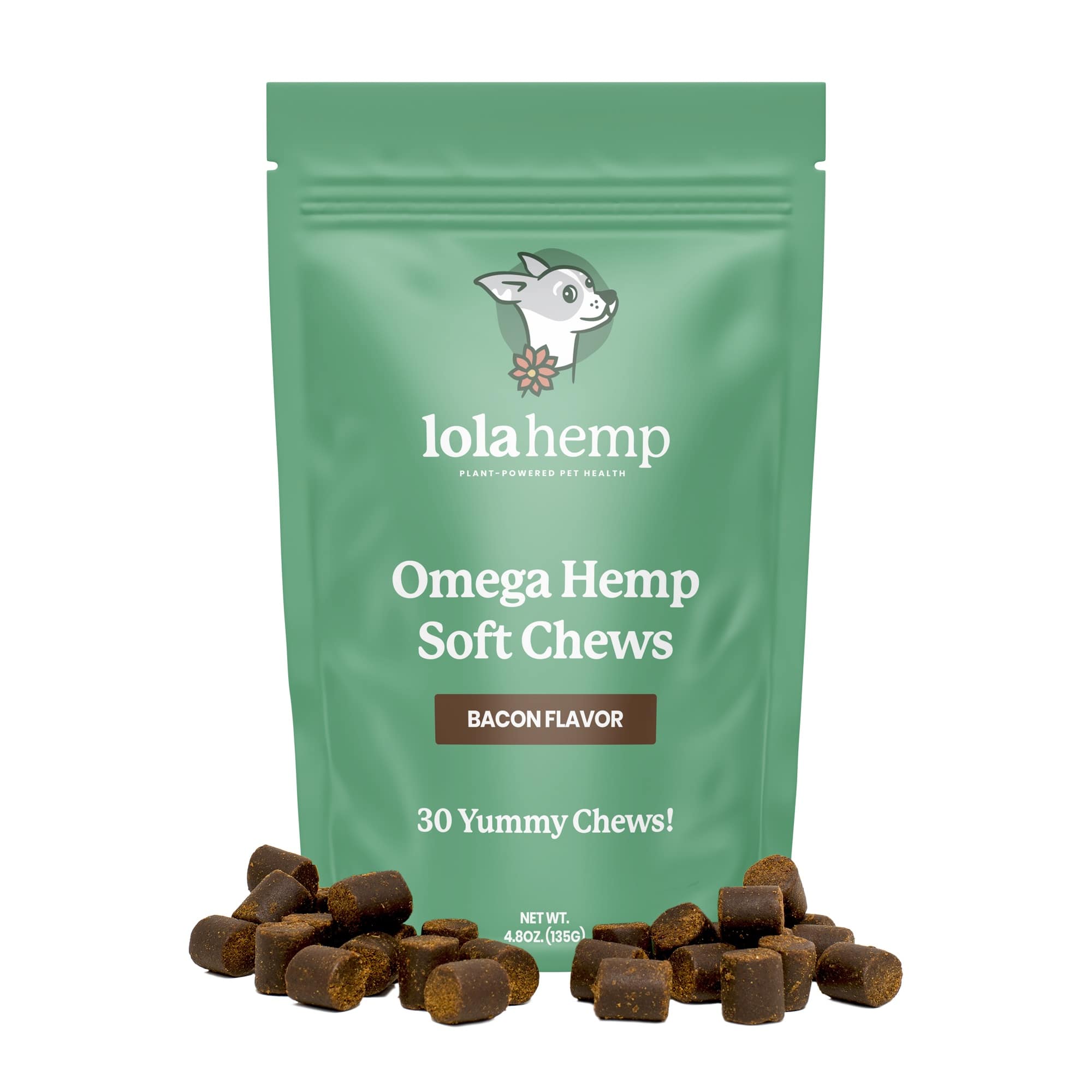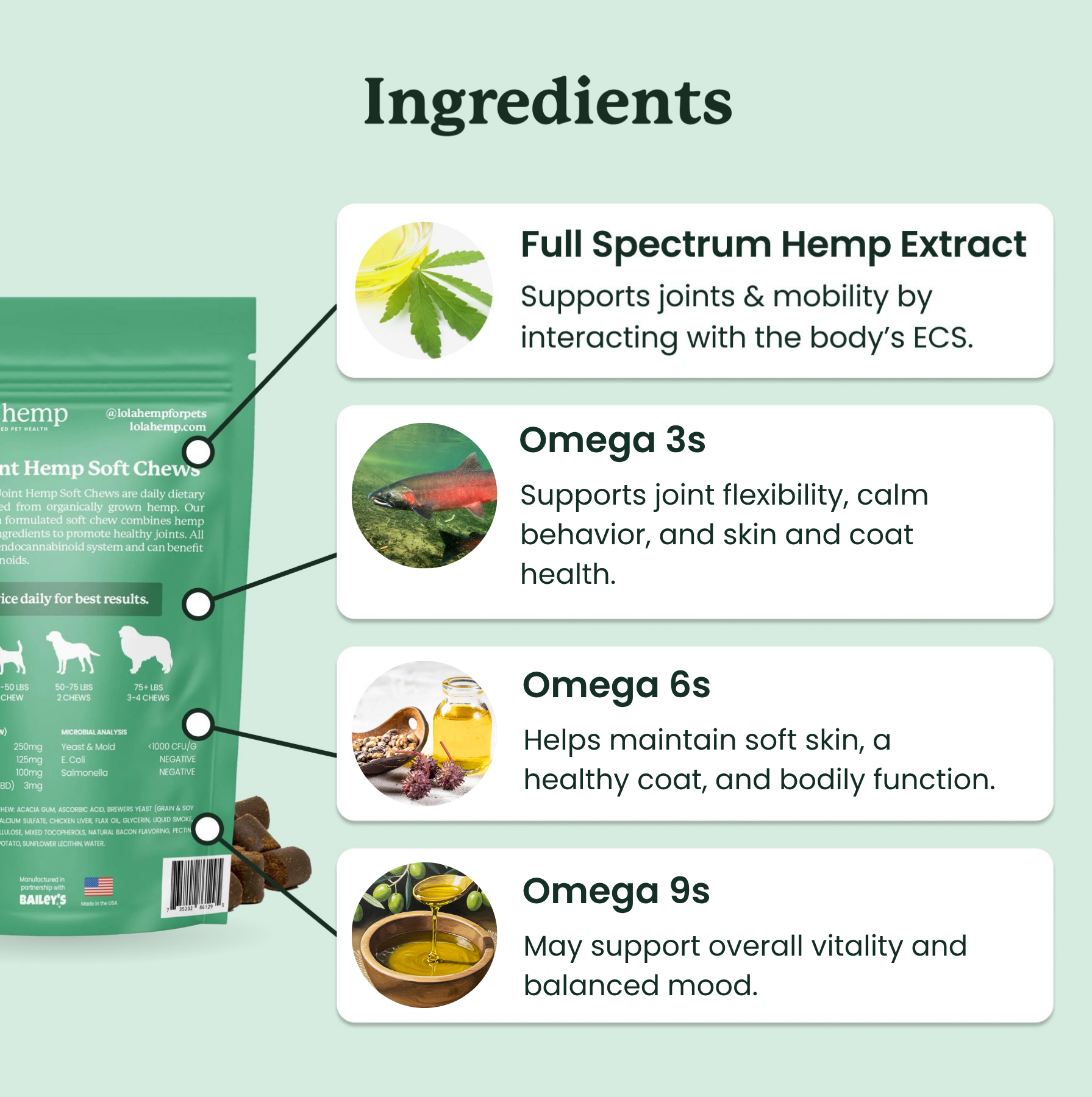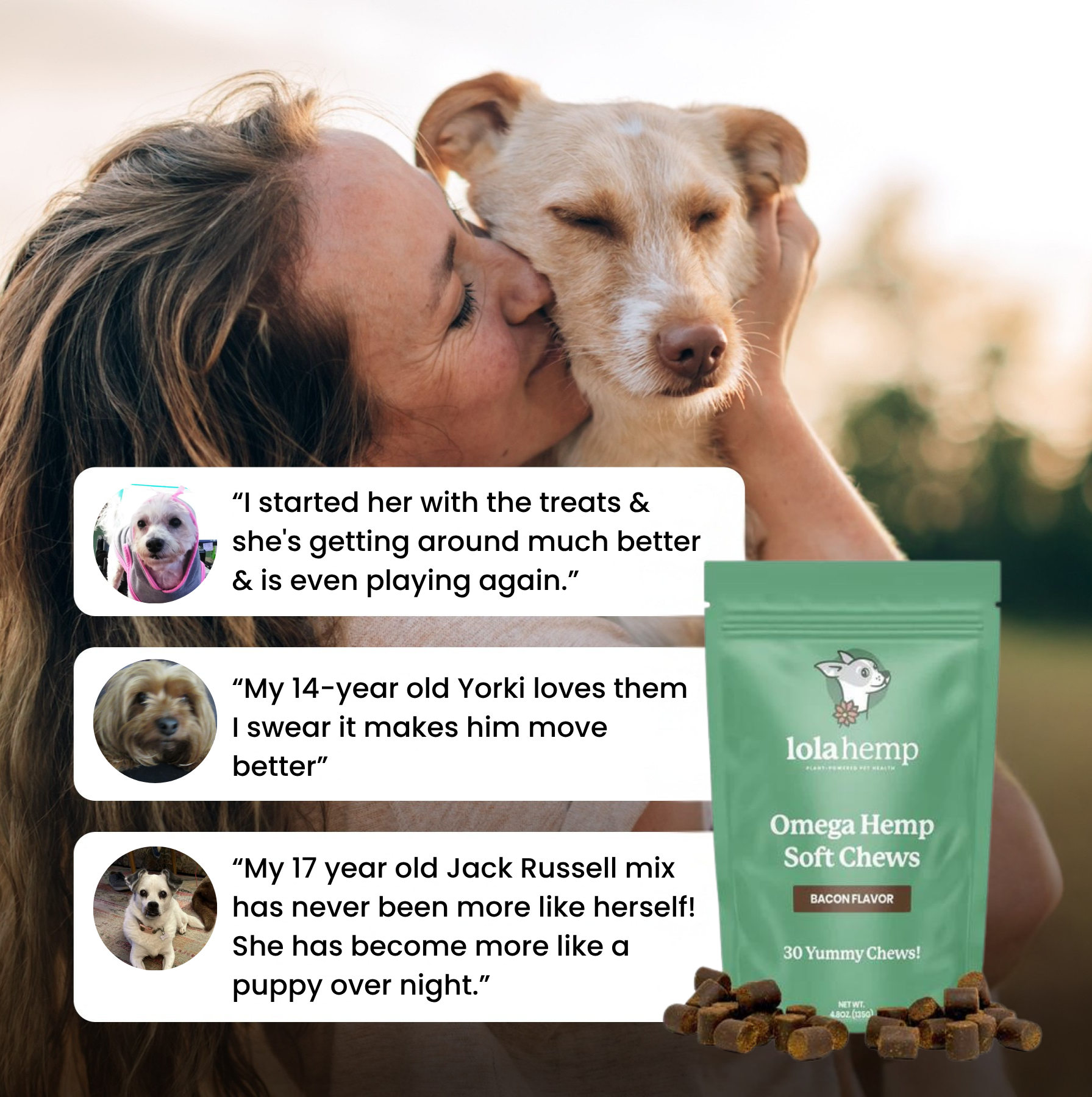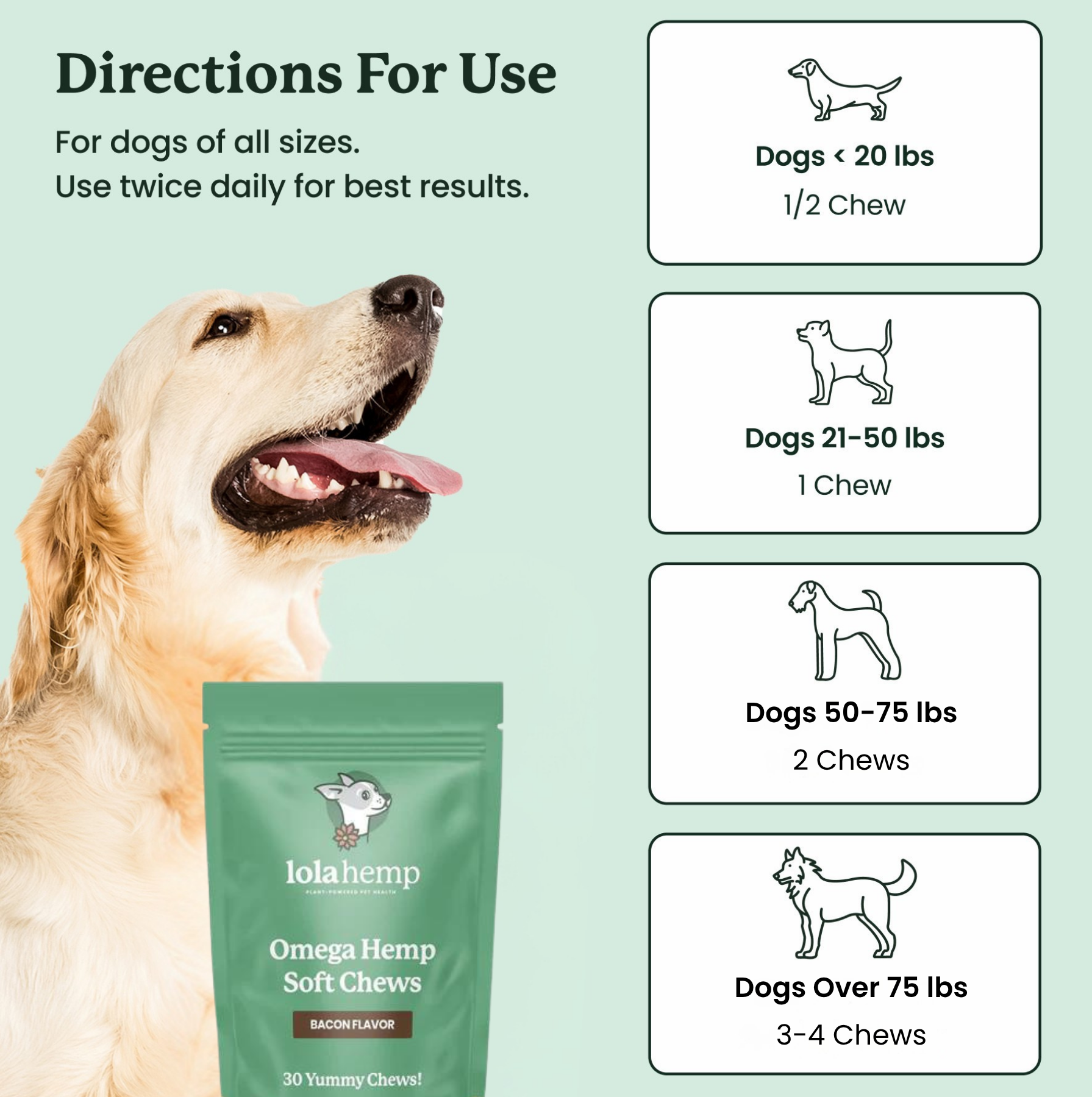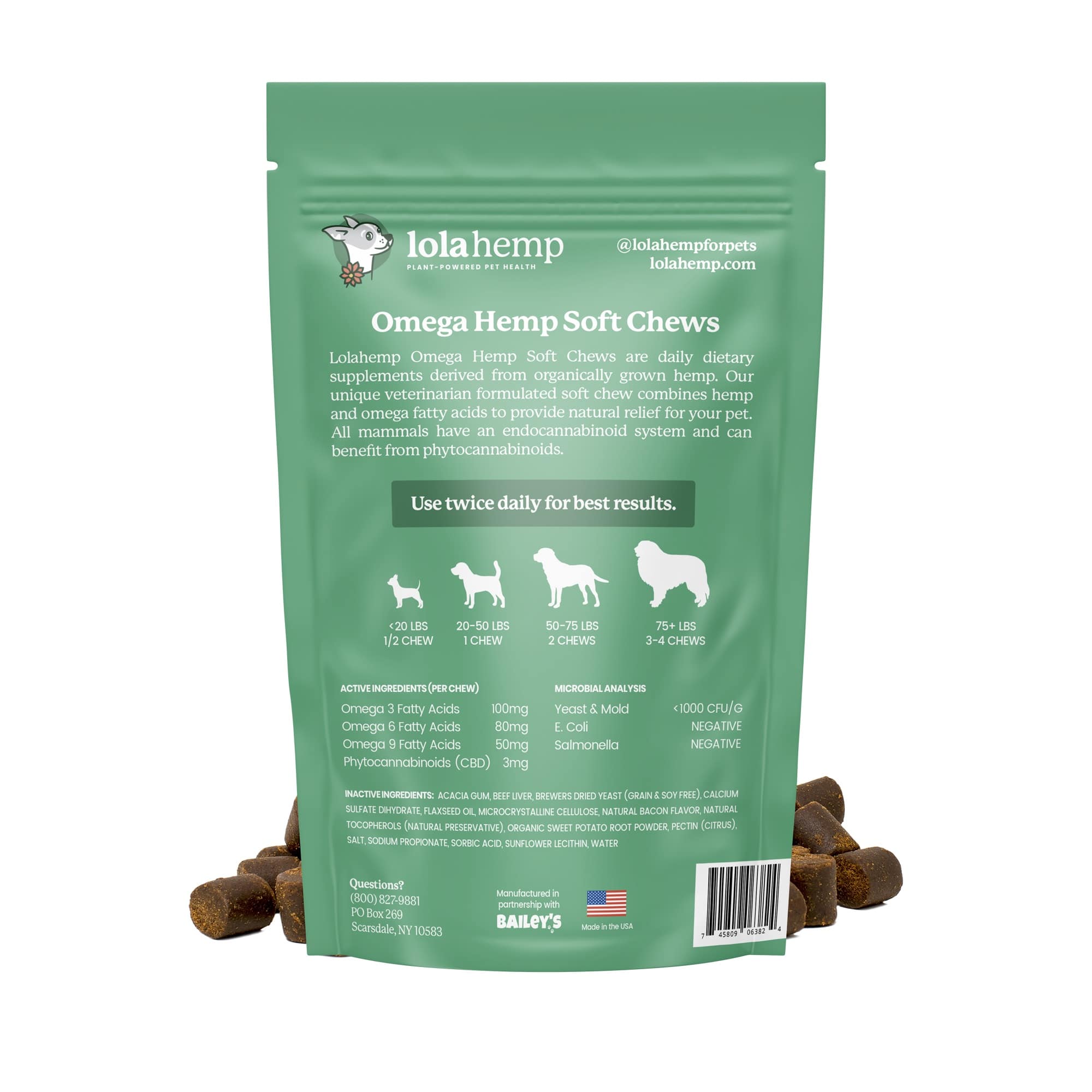Edibles for dogs have become a popular topic in holistic pet care, so long as they're formulated with pet-safe amounts of CBD and less than 0.3% THC. Also, there are many differing opinions on the safety and benefits of edibles. However, the safety and benefits of any edible depend on the ingredients used. Check that the edibles don’t contain ingredients like tetrahydrocannabinol (THC), which is considered toxic to dogs.
You can select options such as CBD treats and chews when seeking the right edibles for your pet. CBD treats and chews are among the best and safest edibles. Many pet owners turn to edibles infused with CBD supplements as a natural remedy for their furry companions. These edibles offer a range of benefits for your furry friend like supporting calm and relaxation, cognitive function, a healthy inflammatory response, and many others.
Let’s explore the types of edibles you can use, whether they are safe, and the specific edibles you must avoid.

What Are Edibles and Are They Safe for Dogs?
‘Edibles for dogs’ are products specifically designed for dogs' consumption. Edibles come in different forms and types, including treats, chews, cookies, gummies, or brownies. These forms make them a convenient way to administer healthy ingredients like omega 3s, vitamins, and CBD.
Contrary to many opinions, edibles don’t always come with toxic or problematic substances such as THC. Edibles can have natural and healthy ingredients that provide holistic support to pooches. Types of edibles for dogs include:
Chews
Dog treats are a great way to slip something extra to your pooch. Treats are also a great way to show love to your canine companion. Dog owners use treats in ways such as rewards for good behavior or training aids to support exercise.
Treats are soft and easily accessible. You can find them in a wide range of shapes, flavors, and sizes. These characteristics make them ideal for rewarding your pooch for good behavior. Treats are also soft, crunchy, and easy to chew.
CBD chews and treats shouldn't be given to your dog all of the time, though. These products contain concentrated active ingredients, so it's very important to follow dosage guidelines for the product you choose.

What Should You Do if Your Dog Eats THC?
Just in case your dog eats weed, you’ll begin noticing the common symptoms of marijuana toxicity within 60 minutes. However, this period varies depending on the amount of marijuana consumed, the concentration of THC, any existing medical conditions, and your dog’s age and size.
You must call a vet immediately. Treatment for cannabis toxicity includes supportive care, stomach pumping, medications, or activated charcoal to prevent further absorption of toxins.
When your dog eats cannabis, the vet may also induce vomiting. However, you must call a pet poison helpline immediately since, to induce vomiting, the vet must see your dog within 30 minutes after marijuana ingestion. If the clinical signs persist, the dog may be hospitalized for supportive care.
Severe signs of marijuana toxicity can lead to life-threatening cases when your dog eats excess amounts of cannabis. However, the pet poison helpline can be effective since they can get in touch with the animal poison control center to identify the extent of marijuana poisoning, thereby preventing any severe cases and acting promptly.
Things to Consider Before Using CBD Edibles for Your Dog
Here are some things to consider before buying CBD edibles for your dog:
Have a conversation with your vet since veterinary medicine may help with how to administer CBD products and the dosages to use
Use microdoses to minimize potential side effects
Read product labels to ensure that there are no toxic products like THC
These guidelines will ensure that you safely use and benefit from CBD edibles for dogs.
Frequently Asked Questions About Edibles for Dogs
Are all edibles safe for dogs?
No. Only edibles made specifically for pets and free of toxic ingredients such as THC are considered safe. Always verify that the product contains pet-safe ingredients and less than 0.3% THC.
Can dogs have side effects from CBD edibles?
Yes. Dogs may experience drowsiness, digestive upset, or changes in appetite if they receive too high of a dosage or if they are sensitive to certain ingredients.
How can I make sure the edible I buy is safe for my dog?
Read the ingredient list carefully, avoid products that contain THC, and confirm the product with your veterinarian before giving it to your dog.
Can my dog overdose on CBD edibles?
While CBD is generally well tolerated, excessive doses may lead to unwanted effects such as vomiting, lethargy, or loss of coordination. Follow dosage guidelines closely and consult your vet.
Should I talk to my veterinarian before giving my dog CBD edibles?
Yes. Your veterinarian can provide guidance on dosing, safety, and whether CBD edibles are appropriate for your dog’s individual health needs.

